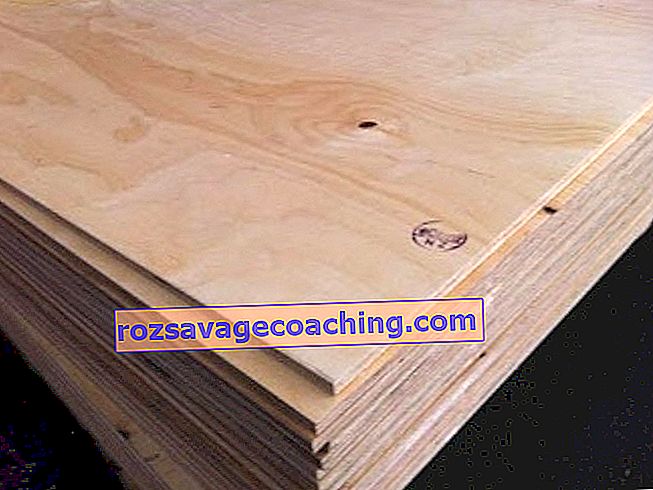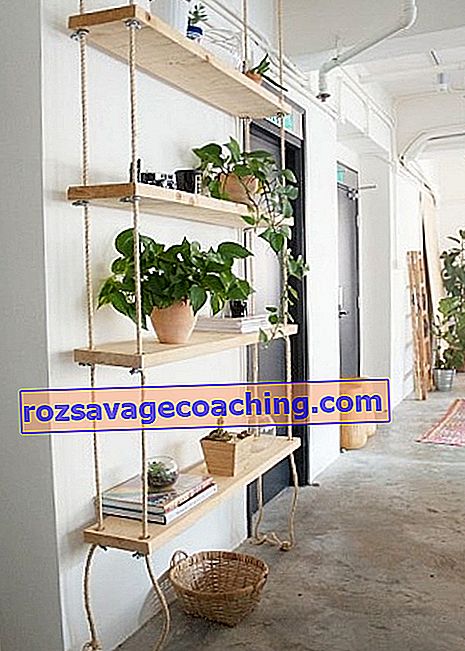
Knowing everything about plywood shelves is vital for any person who is interested in how to make the most of home furnishings with their own hands. There are many options: shelves for typewriters and shoes, corner and books on the wall, shelves-animals and other types. Having dealt with these points, with drawings and manufacturing features, it will be possible to avoid many mistakes and get the most out of it.



Features:
The most important specificity of plywood shelves is convenience and simplicity. Compressed veneer can be made from both birch and softwood. Various types of plywood can be used for the production of shelves.
The higher the number of the material category, the worse the finished product will turn out. Additionally, the impregnation used must be taken into account.



The marking can be used to judge which glue was used. Depending on its composition, the sheets are:
- flame resistant;
- moisture resistant;
- prone to moisture.

There may be some difference in the processing methods. Sanded plywood is quite widespread. Grinding is carried out on one or two sides. The last option is optimal.
In any case, a plywood shelf can be made with your own hands. With skillful work, it looks aesthetically pleasing, this material is environmentally friendly and relatively strong.
In the overwhelming majority of cases, plywood is produced by the circular peeling method. But, for reasons of aesthetics, it is more profitable in some cases to use a material that was peeled with an eccentric twist of the workpiece. With flat planing, you can achieve a strictly specified type of pattern in accordance with the course of processing. For the most complex aesthetic effects, veneer is obtained by sawing (this technique eliminates the requirements for preliminary preparation and ensures the development of natural patterns with a natural range of tones).


For work, you can take plywood brands:
- FSF;
- FC (much better than the previous version, but with less moisture resistance);
- FB;
- FBS (with the maximum level of strength and resistance to moisture);
- FBA (completely natural material).


Varieties
Shoe benches are considered one of the simplest solutions. Typical factory designs are not very good for this purpose. It would be much better to make them with your own hands. In most cases, this will require:
- jigsaw;
- screwdriver;
- electric drill;
- self-tapping screws;
- glue;
- scissors.



The final set of tools and consumables is selected taking into account the features of specific modifications. In the overwhelming majority of cases, the following typical designs are distinguished:
- wall-mounted;
- bedside tables;
- shelving;
- coasters.



A corner shelf will be an excellent filling for a modest hallway. Depending on personal fantasies and wishes, you can use a variety of original forms. It is quite possible to use not a simple triangle, but a curved geometry made according to a unique pattern. Particular attention should be paid to the edge finishing and build quality.
The corner shelf can be performed both separately and as part of a complete structure; they are made both suspended and floor-standing.


Plywood bookshelves deserve a separate discussion. Many of them are in a floor-standing format, and in fact it is more of a small cabinet. Some amateur craftsmen are trying to ensure that all components of the product "sit exactly in place" without nails or additional fasteners. This is achieved through careful fitting of the component parts. If, however, the ideal cannot be achieved, various screws can be used.
The shelf itself must be screwed to the wall anyway. Experts advise to strive for the most "light", "airy" image, to abandon the clutter of space.
A good plywood bookshelf is not one that can hold the maximum number of editions, but one that creates a pleasing look.

Some enthusiasts even use fluorescent substances mixed with polyester resins to make the visual impact visible at night. Other options for bookshelves are possible:
- large rack;
- corner solution to the hallway;
- portable small shelf;
- folding product on the wall;
- shelf-bench;
- semicircular version.



It is appropriate to complete the review on carved and openwork shelves in children's rooms (and objects similar to them in elegance). In this case, the main goal is to get additional storage space. And not just for storage, but also for easy access at any time. It is these considerations that allow you to create a piece of furniture that perfectly meets the needs.
Concepts of practicality, however, can recede into the background - sometimes they try to make an original looking curly shelf.


Other possible variations:
- hinged "house" for toys;
- hanging shelf (it is convenient to put both the toys already described and decorative items there);
- design with hooks for clothes (it is convenient to use it in homes with newborn children).


Appointment
The difference between the designs can also be related to their intended purpose. It is easy to make an attractive and comfortable shelf on the wall for shoes from plywood (to the house, to the country house, even to the garage). The simplest option involves the use of hooks - nothing more is needed. But for those actively walking along the street in the off-season, a multi-level structure will be more attractive. It avoids contact between dirty and clean shoes.


The addition of such a product with a small mirror turns out to be a completely logical solution.
But for long-term storage, a shelf with closed drawers is preferable. It is usually decorated in a rustic style, although this is not necessary. For a large number of shoes, it is recommended to use an entire wall cabinet with thin plywood shelves. They are arranged in the manner of brickwork; to make the product stronger, separate shelves are fixed to a wide board of thick wood.


In a children's room, shelves are often used to store toy cars and other small toys. Sometimes they are supplemented with glazed doors, where anti-reflective glass is inserted. But such doors must be made exactly according to the allotted dimensions in order to avoid mistakes. The presence of an easily removable interchangeable back is useful.
Such a solution is comfortable both for using the collection and for admiring it; this approach will be approved, among other things, by collectors of various decorative items.


If you need to make a shelf for flowers, for the kitchen or for small quantities of books, you should focus on other approaches. The front walls are not needed here for sure, and you can do without the rear ones.
The variety of possible options is almost limitless. Any experiments with colors, geometry of products are allowed.


Flowers can be placed on a hanging shelf. In this case, the fastening is performed with cables, brackets, chains and other methods. However, it is definitely not necessary to count on a serious load. A wall-mounted flower shelf turns out to be a standard and familiar solution. It is attached with brackets, self-tapping screws (sometimes hinges are also used). But in terms of stability and safety, there is no equal to floor structures.


And also shelves for flowers can be made in:
- angular;
- direct;
- curly;
- multi-tiered;
- single and group options.

DIY making
Making plywood shelves with your own hands is not as difficult as it seems. Using a jigsaw, even novice craftsmen can easily create an original curved shape. A good clean cut can be made with masking tape. Important when using an electric jigsaw:
- turn off the pendulum stroke;
- put a high-quality file;
- perform a cut first from the rough side;
- wet the cutting line with water (then the burrs will still be, but they are small);
- or use PVA glue (this option is much better).

This drawing shows a multi-tiered sophisticated design. It includes shelves with a height of 300 mm. Their length is 500 or 1000 mm (at the choice of the owner). An alternative solution is 960 mm long, 160 mm wide and 20 mm thick support legs. In the case of a wall shelf designed for limited loads, 8 mm plywood can be used without any hesitation, otherwise a more resistant material is needed.
Closed side walls are always used on book shelves. The open option is chosen for installing decor. In any case, the workpieces are laid flat on the table. So it will be easier to transfer the exact dimensions from the drawings to them and perform other necessary preparations.
Important: if you have to put books on the shelf, it is absolutely impossible to take coniferous plywood and a similar tree.


The easiest way to get a body of a classic shape is from 4 standard blanks. They should be clear paired elements. The connection of the parts can also be done with self-tapping screws, however, confirmations are much better for such work. It is better to drill a hole for any screw in advance. When you try to screw it into an unprepared material, cracking is inevitable; in a closed version, the back side is made of a chipboard sheet.
Sometimes they do without fasteners. Simply "according to the designer's scheme" individual elements are adjusted to each other. The back wall is usually made of fiberboard, nailing it with furniture nails. To give an optimal appearance, plywood is most often painted. But you can also decorate by using self-adhesive film.
How to make plywood shelves with your own hands, see the next video.
Examples of crafts
A widespread and even romantic, in a sense, option is shelves in the form of animals. The figure of a bear can be a very attractive solution.
A full-size version of this craft can be created from 9 mm thick plywood. You can take 18 mm, but it will be unnecessarily difficult. This is how the product might look in practice.

Here are a few more modifications:
- shelf in the form of a cat;

- 6 graceful shelves that fit into the shape of a deer;

- stylized fish;

- an impromptu multi-tiered rocket (such a storage system will delight children).
